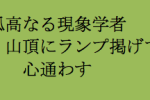Feature
May 14th, 2013 |
By Marc Applebaum

Magnus Englander’s 2012 article, “The Interview,” is an excellent resource for students learning how to conduct phenomenological research. As Englander points out, though Steiner Kvale’s excellent work on interviewing is well known among qualitative researchers, there are important differences between Kvale’s work and a phenomenological perspective. This article clarifies issues such as how to select
[continue reading…]
Posted in Feature |
Comments Off on How to interview phenomenologically: Englander (2012)
Tags: Englander, Giorgi, research
Apr 12th, 2013 |
By Marc Applebaum

Merleau-Ponty (1993) wrote, “For the speaker no less than for the listener, language is definitely something other than a technique for ciphering or deciphering ready-made significations” (p. 80). He is ever insistent that being-in-the-world is an embodied event, an ongoing discovery, and he relentlessly examines the ways in which experiences are given to us, prior
[continue reading…]
Posted in Feature |
5 comments
Tags: Applebaum, cultural psychology, hermeneutics, intersubjectivity, Merleau-Ponty, technology, Yoshida
Oct 15th, 2012 |
By Marc Applebaum

Earlier this year I was invited to Volvo’s headquarters in Sweden to pilot my phenomenologically-based empathy training–afterwards, organizational consultants began to take an interest in what I was doing. Ahrenfelt, a well-known corporate consulting firm, invited me to give a talk at their yearly meeting in Stockholm. In preparing for such a talk outside of
[continue reading…]
Posted in Feature |
Comments Off on Englander: Empathy Training and the Primacy of the Other
Tags: empathy, Englander, Giorgi, intersubjectivity, Organizational phenomenology, research
Sep 9th, 2012 |
By Marc Applebaum

Shogo Tanaka’s site Embodied Knowledge, with which I’ve just become acquainted, approaches the philosophy and psychology of embodiment through the lens of Husserl and Merleau-Ponty’s phenomenology. Tanaka teaches at Tokai University in Japan, and he is particularly interested in the dialogue between phenomenological philosophy and empirical sciences such as “neuroscience, cognitive science, artificial intelligence, robotics, etc.”
[continue reading…]
Posted in Feature |
1 Comment »
Tags: embodiment, Merleau-Ponty
Sep 5th, 2012 |
By Marc Applebaum

This PowerPoint presentation accompanied my 2-day graduate seminar introducing students to the descriptive phenomenological psychological research of Wertz, Halling, and Englander. The seminar was offered as an introduction for students who may never have encountered phenomenology before; its aim was to give students a sense of the kinds of questions descriptive phenomenologists ask, the careful
[continue reading…]
Posted in Feature |
Comments Off on Themes in Phenomenological Psychological Research: Intimacy, Trauma and Resilience, and Empathy
Tags: Applebaum, Giorgi, psychotherapy, research
Jul 3rd, 2012 |
By Marc Applebaum
Sebastian Elsaesser is a psychotherapist specializing in process work, psychosomatic medicine, and altered states of consciousness. He maintains an active practice in Stuttgart, Germany and in Brazil. For years he has collaborated with Peter Frör in developing a program in the Intensive Care Units of Klinikum der Universität München, one of Germany’s most technically sophisticated
[continue reading…]
Posted in Feature |
2 comments
Tags: embodiment, human science, psychotherapy, research
Apr 26th, 2012 |
By Marc Applebaum
Husserl’s phenomenology is epitomized in his call for a return “back to the things themselves,” “Zurück zu den Sachen selbst.” We view this “return” as a shared project. The return, in other words, is intersubjective and not solipsistic: we return to the things in order to dialogue together about them together
[continue reading…]
Posted in Feature |
Comments Off on Welcome to the conversation
Tags: Giorgi, Husserl, intersubjectivity

 Follow
Follow email
email


